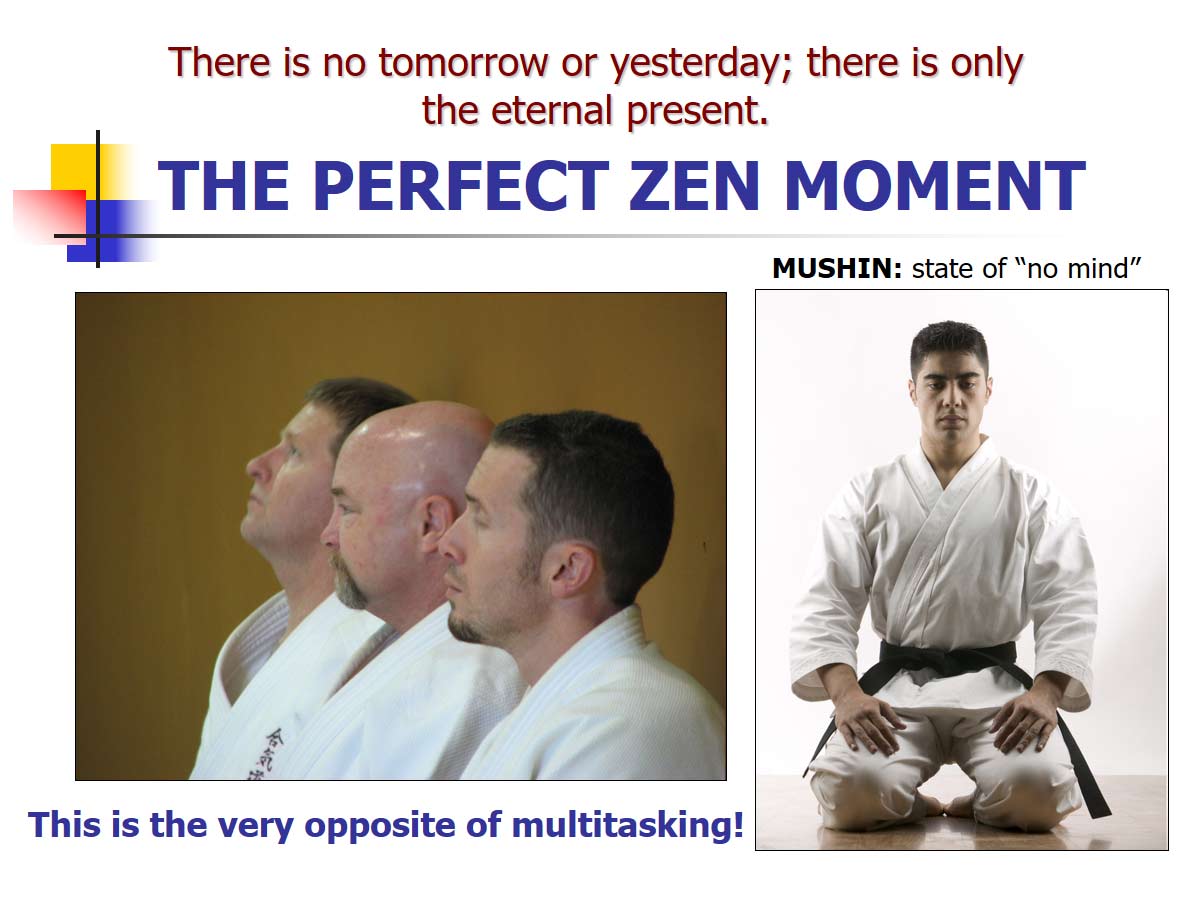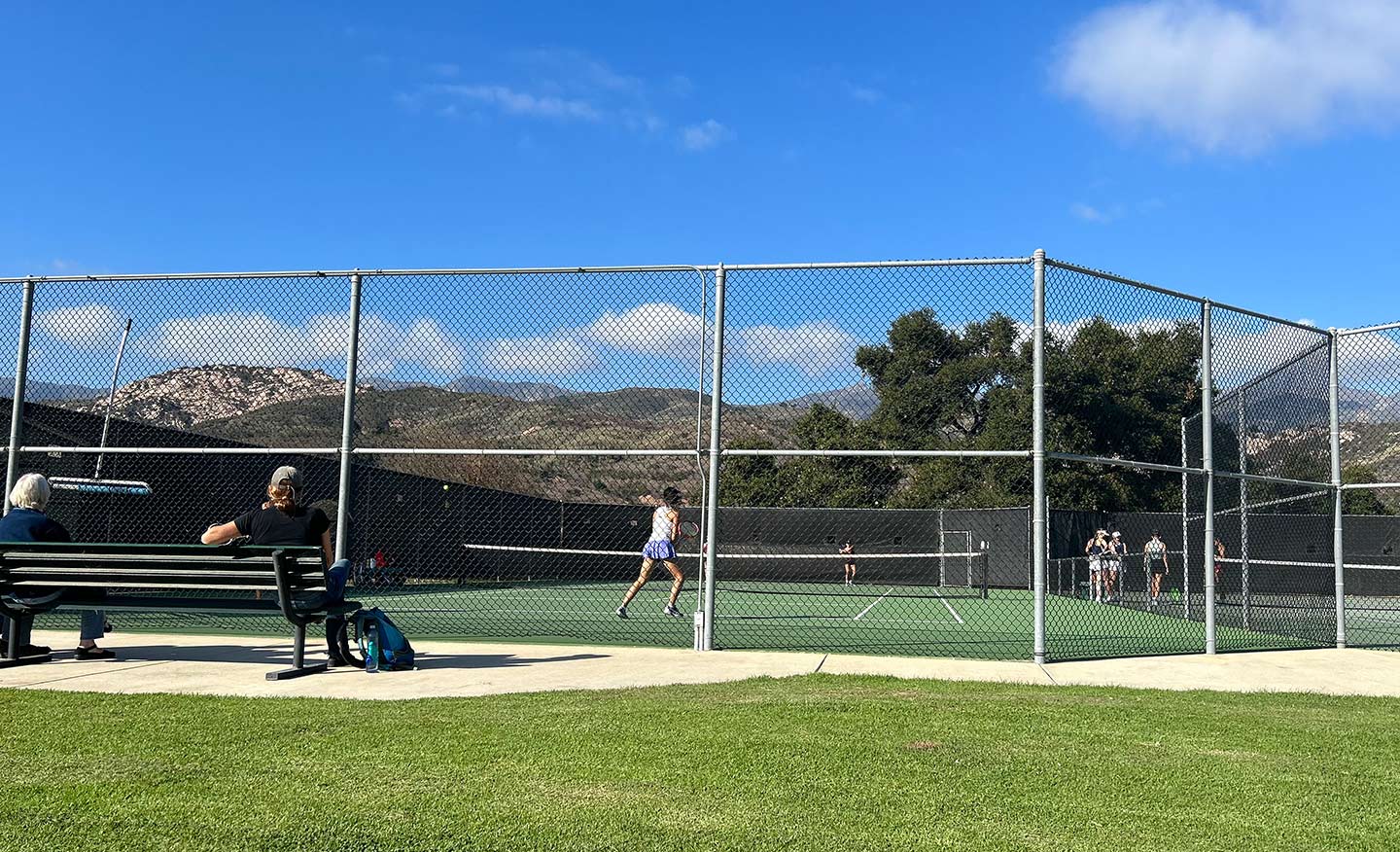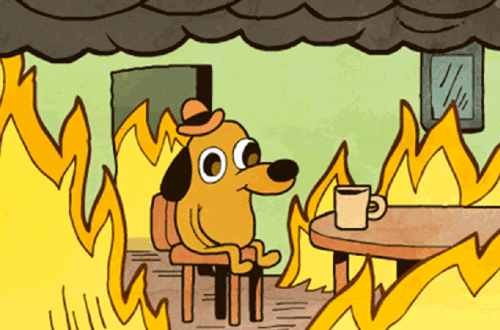My older daughter last week won her high school league finals match with her doubles partner in girls tennis.
It was a tight match against quality competition, and it could have gone either way. As her father (and coach), I was emotionally invested in her winning. She won last year. I hoped my daughter would repeat. But I know how sports can go, and I was prepared for a possible loss. In competitive athletics you play the best you can on that day, and sometimes you lose and sometimes you win. It is best to not be overly attached to the final result if you want to play your best tennis, and instead try to clear your mind of anxiety and just relax and compete – focus your attention and play your game. As Rafael Nadal says, “Losing is not my enemy. Fear of losing is my enemy.” Fear can cause you to tighten up. Abjure it. Or as T.S. Eliot said, “Teach us to care and not to care.” This might be easier to say than to do.
So what happened during this match? Well, the first set was tight as could be, but my daughter and partner pulled it out 6-4. The second set was more lopsided, and towards the end the other girls wilted a bit under the pressure. It was a right 3-3 when the young lady on the opposition double faulted to lose her serve, and she was on the verge of tears. Our team then held their serve. Then they broke the other team at love to take the match. The final score was 6-4, 6-3. My daughter was overjoyed. But she was also exhausted, not so much physically as mentally and emotionally. That was to be expected. It was a high-stakes tennis match.
My daughter is a junior and her partner is a senior. The other team was a freshman and a junior. This was the difference. Our team was older, more mature; they played more solid tennis under pressure in the crucial moments when it counted. The difference was mental toughness, as it often is in tennis, and in most other sports.
This was super important to me as a father. Hitting a ball with a racquet is not so important in the larger scheme of things. Neither is learning how to kick a soccer ball or throw a football, even though massive amounts of energy and money revolve around those who can do so well. By itself sports are not so important. But the traits learned through sports are important. Learning how to operate at peak level under pressure, in particular, is ultra important in all sorts of critical activities: from performing optimally on important tests, to performing well in job interviews, to responding quickly in a crisis, to keeping your cool under extreme pressure. To do this really all comes down to controlling your brain, and you controlling your emotions instead of letting them control you. This is easier said than done. But the old adage still rings true today: your mind is a powerful weapon, so make sure you don’t use it against yourself. A person really can learn how to influence how their brain operates and to get the most out of it when it counts, although nobody is born knowing how to do this. A person learns to control their mindset under pressure through experience. “Iron sharpens iron, and one man sharpens another.” This is what is so important. And it really is what I wanted my daughter to do last week in the tennis league finals, as well as in the classroom, and what sports can help her to learn:
- Learn to operate at peak performance under pressure
- Learn how to win with class and humility, as well as how to lose with dignity and grace (both are equally important)
- Learn how to conscientiously improve over time in an endeavor through hard work
- Learn how to deal cooperatively with peers and also resolve conflict
- Learn how to take direction from and communicate with coaches or bosses
Again, sports by themselves are not so important, but learning all the above skills could not be more important! If you want to win on the tennis court you need these skills, but they are even more important off it. That is why as a parent I have invested so much time and energy in youth sports. Youth sports builds character in young people, and then reveals it under pressure. It is almost a cliché to repeat Lord Wellington’s supposed comment that “the Battle of Waterloo was won on the playing fields of Eton.” But I suspect there is truth in the claim.
I would return again to learning how to control your brain so as to perform at peak levels during critical moments in life. The morning before her big match I sat down with my daughter and talked at length about the brain and learning to harness it to work for you, rather than against you. Usually when I try to coach my teenage daughter, she ignores me. On the finer points of tennis technique or doubles strategy, she is uninterested in more advice from “dad.” (This frustrates me to no end.) But when I talked at length about the proper mindset for peak performance under pressure that morning, she listened attentively and asked questions. I spoke at length about how to seek to develop laser-like focus, even in high-stress environments – especially in high-stress environments. I placed this ability firmly in the Japanese martial arts tradition of “mushin” – keeping an “empty mind” able to act without conscious thought, and how “performance anxiety” is death to this capability. Empty the mind of conscious thought and allow the body to do what it was trained to do. “Control your breathing, center your focus, prepare to battle, and just play tennis,” I advised her. “Relax and play your game.”

I urged her to learn to control her breathing and enter into a “flow state” where she could get into “the zone” –
When there is chaos around and distraction rears its ugly head, I suggested she learn to “clear the mechanism” and do what she has been trained to do –
Relax the mind and allow it to work with the body to perform what you have spent many years learning to do. If my daughter shows the proper “fighting spirit” and does her best, whether she wins or loses is not so important. That will usually take care of itself. And I will be most proud of her, regardless. But she must dig in and FIGHT – “God hates a coward.” Of all things in the world, perhaps courage is the most important.
It is hard to underestimate how important this dynamic has been to me in life, and I tried to communicate to my daughter the importance of learning over time (through trial and error, victory and defeat) how to bring out her best effort through control of breathing and focusing of the mind. Nobody is born knowing how to do this… you have to learn it. Or more accurately, you have to earn it. Through hard training and the crucible of experience. You want difficulty and pressure in this, not ease or comfort.
Which is why I want coaches and teachers to take my daughter outside of her comfort zone. That is where you learn at a deep level and make breakthroughs in performance and capability. That is where a person learns to function at the highest possible level. I don’t primarily want “comfort” for my daughters. I want difficulty. I want struggle. I want growth. I want maturity. I want transcendence. I want success. I want excellence, if at all possible, as much as they can. The body is important in this effort, of course, but it is the mind which is more important. Mind and body should work together, not at cross purposes. Overthinking is the Scylla, and not thinking at all is the Charybdis of mental weakness, and both will result in a suboptimal performance. The mind should be calm and ready. Supple and strong. Not brittle and anxious. Not angry or distracted. Or turned off. Or frozen in panic.
Your brain should be the leader in bringing you to a successful and happy life. For too many, the brain is the problem. Of course, some are doomed with poorly functioning brains and will struggle to move forward. But everyone can take concrete actions to improve how their God-given brains operate. Many don’t.
I would not have my daughters in that last category, if I could help it.
So talking at length with my older daughter about all this was super important to me. And having her play tennis her whole life also led up to her league finals match that same afternoon. This was the culmination of years of training and parenting from me, in an area which is fundamental to my life, too. I wanted my daughter to “get it.” This was a tool I wanted her to have access to when she needed it, because she will need it, Lord only knows.
And she seems to have gotten it. My daughter played solid tennis in that league finals match, and she did so in front of an audience with all eyes on her. My daughter did not let inevitable mistakes by herself or her partner derail her ability to focus on the next point or points. Even after mistakes she and her partner kept it positive, looked to the next point, and did not get down on themselves. Their team did not wilt under pressure; they took the match. My daughter was overjoyed afterwards; she had earned the victory at league finals, theirs was the better team that day, and she knew it. This experience was positive momentum moving forward, and make no mistake about it winning begets winning in life. (And losing begets losing.) The tennis road to her winning that important league finals match had been littered with innumerable losses over more than a decade, and the losses were often bitter. My daughter had been playing tennis almost her entire life. It was many long years for me of paying for tennis lessons, driving her to tournaments, hitting balls to her in practice, and coaching her junior teams. But along the way my daughter learned, grew, and improved; there was no other way. The road to victory runs through the crucible of defeat. Nobody gives you anything; you must earn it. And you often learn more in defeat than in victory. Then a player (hopefully) learns from those defeats: this is how a person learns to achieve success in sports, and in life generally. After the match I sought to reinforce the lesson, trying to encourage her further. I explained:
“It is the same in taking Advanced Placement exams. Or medical school interviews. Or fighting off an attacker. Or pushing out a baby. Or dealing with any high-pressure challenge where you want to optimize your performance, beautiful daughter! Learn to control your mind, focus your energies, fight for your goals, and succeed in managing a difficult moment. Be prepared! Practice hard and acquire the necessary skills. Rise to the occasion. Trust in your abilities. Keep your head about you. See what needs be done. Stand and deliver.”
Go forth in the future and succeed in life, daughter Julia.










One Comment
Pingback: